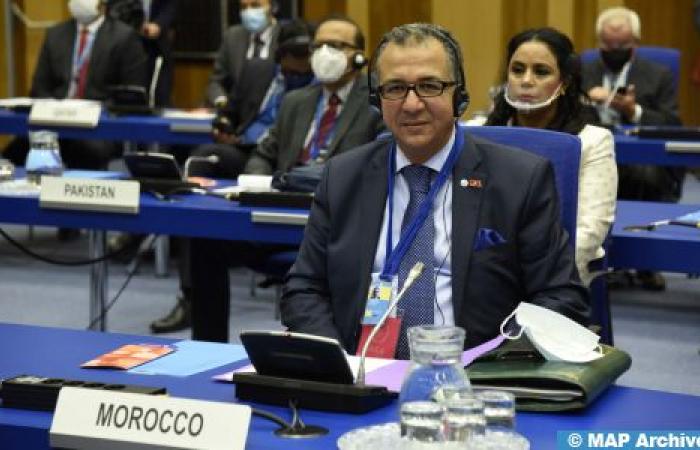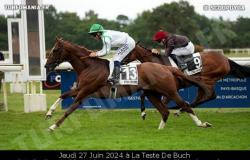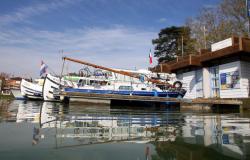
Vienna – Morocco is convinced that international and regional cooperation is essential to strengthen the peaceful uses of outer space, said Morocco’s permanent representative ambassador in Vienna, Azzeddine Farhane, on Wednesday.
In a speech on the occasion of the 67th session of the Committee on the Peaceful Uses of Outer Space in Vienna, Mr. Farhane noted that such cooperation is likely to help Member States develop their space capabilities and to contribute to the achievement of the 2030 Agenda for Sustainable Development.
Aware of the fact that the peaceful use of outer space is crucial for the long-term sustainability of space activities, “Morocco expresses its commitment to responsible and sustainable space activities and remains committed to the principles of the Treaty of 1967, guaranteeing the equitable and rational use of outer space, its non-appropriation and non-militarization, including the moon and celestial bodies,” he stressed.
To this end, it is essential to ensure that space activities are carried out for the benefit of all countries, regardless of their level of development, “ensuring equitable access, sustainability and peaceful use of space as a common heritage for the benefit of current and future generations,” he continued.
Aware of the need to put in place measures to mitigate factors likely to hinder scientific discoveries, Morocco remains convinced that space must be preserved and protected as an element of the common heritage of humanity, said the diplomat.
It is therefore essential to encourage and support research into light pollution mitigation and the effects of satellite constellations on astronomy, in order to establish a balance to preserve the quality of astronomical observation activities and maintain services provided by satellites.
Regarding the importance of space technologies as a vector of economic growth, Morocco is firmly committed to the path of mastering advanced technologies and their integration into all economic sectors, recalled Mr. Farhane, noting in this sense that Morocco’s space activities have experienced notable development after the launch, in November 2017 and November 2018, of the two Mohammed VI A. and B satellites.
This achievement as well as Morocco’s initiatives through its strategic development plans indicate very clearly that Morocco has made the space technological tool a real asset and a strategic lever within the framework of the socio-economic development of the country, he said. -he argued.
Aware of the role of spatial information in disaster management, several Moroccan departments and institutions have initiated, with the Royal Center for Spatial Remote Sensing, mapping and exploitation of satellite images projects to meet the needs of disaster management. disasters, said Mr. Farhane, noting with satisfaction the support and contribution provided by the Office of Space Affairs and its UN SPIDER program in the organization of the Technical Advisory Mission and the training which took place from 20 to May 22, 2024, in Rabat, under the theme of geospatial information for natural risk management.
Furthermore, Morocco, as a member of the African Space Council of the African Space Agency, considers that cooperation with African countries is a fundamental pillar of its national strategy for the development of space activities, assured Mr. . Farhane, specifying that several international or bilateral agreements have been concluded for capacity building and technology transfer in the space domain, serving as essential tools to meet the needs of African and developing countries.
Since its creation in 1998, the African Regional Center for Space Science and Technology (CRAST-LF), affiliated with the UN and located in Rabat, has been committed to developing the skills of human resources in the field of science. and space technologies and their applications in areas of societal interest, observed Mr. Farhane in this regard.
Thus, in 2022 and 2023, 79 beneficiaries from ten African countries participated in the postgraduate training: Master in Space Science and Technology (STE) in the sectors of remote sensing and geographic information systems and global satellite navigation systems .
And to conclude that as part of this regional approach, Morocco will spare no effort to continue to promote knowledge and understanding of space law and space policy at CRAST-LF, through the organization of higher education in space science and technology, regional workshops and short-term training providing ongoing support to these efforts.





